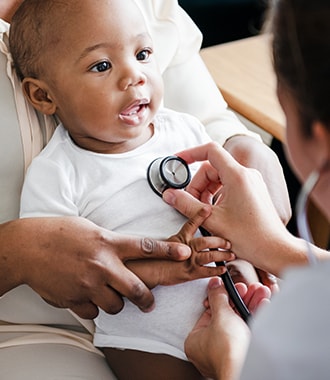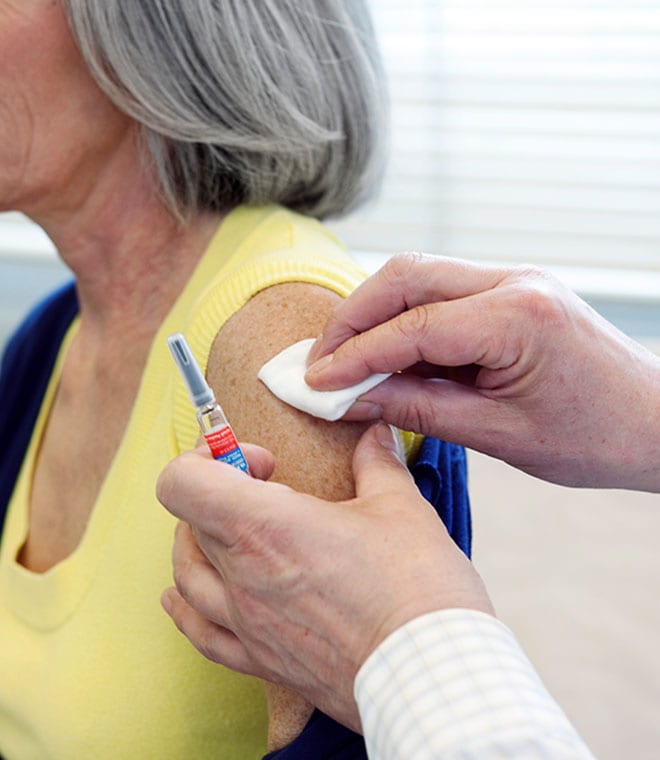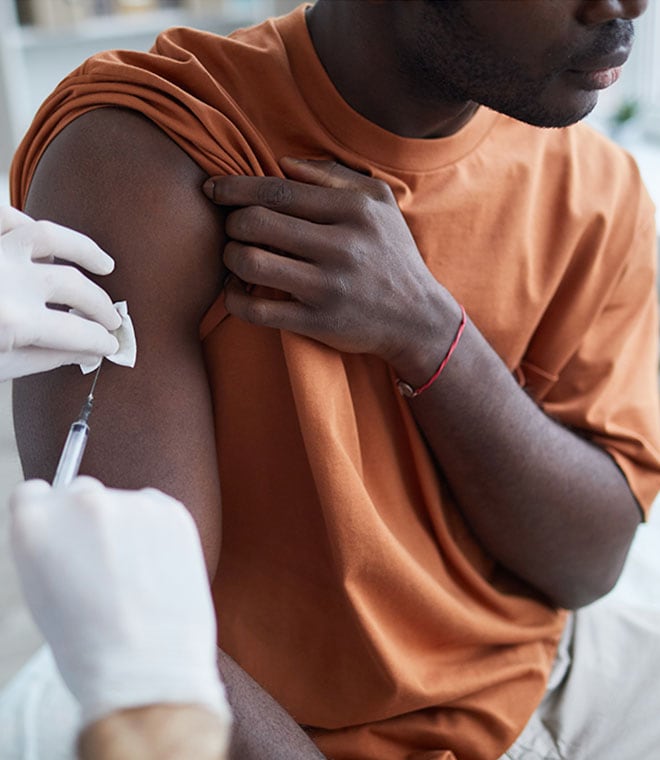Health
RSV vaccine: How older adults can stay protected
By Christina Varvatsis, PharmD, BCPS Aug 07, 2025 • 6 min
Respiratory syncytial virus (RSV) is a highly contagious respiratory illness, and older adults are at increased risk for severe complications. But here’s the good news: RSV vaccines are available, offering seniors an added layer of protection this RSV season. And now it’s easy to schedule your RSV vaccine at Walgreens.
What is RSV?
Respiratory syncytial (sin-SISH-uhl) virus, or RSV, is a common respiratory virus that typically causes mild, cold-like symptoms. Most people recover within two weeks. However, certain groups, such as infants, young children and older adults, are more likely to develop severe infections, including bronchiolitis (an inflammation of the small airways in the lung) and pneumonia.
While many people associate RSV with babies and young children, older adults are also at risk for complications. The CDC estimates that 60,000–160,000 older adults in the United States are hospitalized with RSV each year, and 6,000–10,000 of them die due to the condition. For more on RSV, you can read our RSV article.
Symptoms of RSV may include:
- Runny nose
- Decrease in appetite
- Coughing
- Sneezing
- Fever
- Wheezing
RSV can also worsen serious health conditions, including:
- Asthma
- Chronic obstructive pulmonary disease (COPD) — a chronic lung disease that makes it hard to breathe
- Heart failure — a condition where the heart can’t pump enough blood and oxygen through the body
Who is at high risk of severe RSV infection?
Most adults who get RSV usually have mild or no symptoms and recover in five days or less. However, some people are more likely to develop severe symptoms and may need to be hospitalized.
Adults at the highest risk of severe RSV include:
- Older adults, especially those 75 and older
- Adults with chronic lung or heart disease
- Adults with weakened immune systems
- Adults with certain other chronic medical conditions, such as the following: severe diabetes, severe obesity (BMI ≥40), end-stage renal disease, chronic liver disease, neurologic conditions impairing airway clearance, frailty, or residence in rural areas with limited access to care
- Adults living in long-term care facilities or nursing homes
People who have trouble breathing, become dehydrated or have worsening symptoms may need to be hospitalized.
How and when does RSV spread?
In most areas of the United States, RSV season starts in the fall and peaks in the winter, although the timing and severity can vary from year to year.
RSV spreads when the virus droplets from an infected person's cough or sneeze get into your eyes, nose or mouth. You can also come into contact with the virus by kissing or by touching a surface with the virus on it, then touching your face without washing your hands.
Most people with RSV are contagious for three to eight days and may become contagious one to two days before symptoms develop. However, some people with weakened immune systems can continue to spread the virus for up to four weeks, even after symptoms have resolved.
As an older adult, how can you protect yourself from RSV?
The CDC recommends all adults 75 years and older, and adults 50-74 years who are at increased risk of severe RSV disease receive the RSV vaccine. Three FDA-approved RSV vaccines are currently available in most states for eligible adults: GSK’s Arexvy, Pfizer’s Abrysvo, and Moderna’s mResvia. Your pharmacist will help determine whether the RSV vaccine is right for you and which specific vaccine may be most appropriate. If you have any questions or would like more information, speak with your pharmacist. And if you’re ready, schedule your vaccine online today. Note: RSV vaccination is currently a one-time dose. If you received the vaccine last year, you do not need another dose this season.
Vaccines subject to availability. State-, age- and health-related restrictions may apply.
This article is meant for informational purposes only. Always seek the advice of your physician or qualified healthcare professional.
Clinically reviewed and updated by Joseph LaPapa, PharmD, August 2025.
Sources:
- https://www.cdc.gov/rsv/vaccines/older-adults.html
- https://www.cdc.gov/rsv/vaccines/adults.html
- https://www.cdc.gov/rsv/about/index.html
- https://www.cdc.gov/rsv/hcp/vaccine-clinical-guidance/adults.html
- https://www.cdc.gov/rsv/causes/?CDC_AAref_Val=https://www.cdc.gov/rsv/high-risk/index.html
- https://www.cdc.gov/rsv/symptoms/index.html
- https://www.cdc.gov/asthma/respiratory-infections/?CDC_AAref_Val=https://www.cdc.gov/asthma/respinf.html
- https://www.cdc.gov/rsv/causes/?CDC_AAref_Val=https://www.cdc.gov/rsv/about/transmission.html




